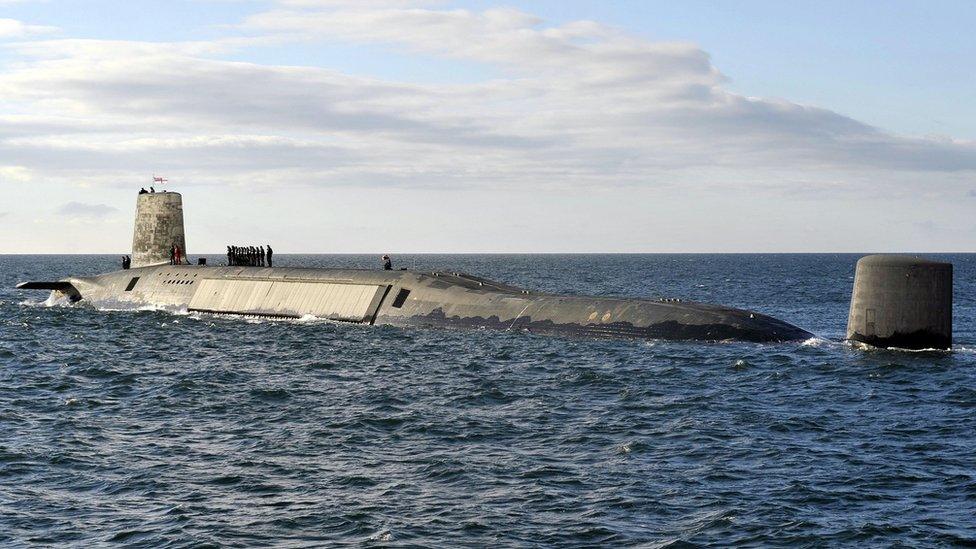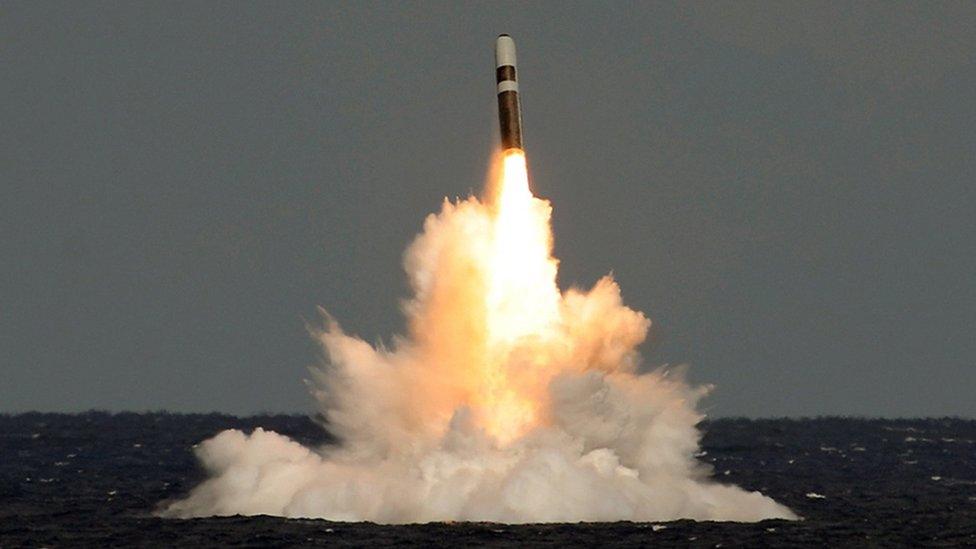Q&A: Testing Britain's Trident missile system
- Published

There are four Vanguard-class submarines capable of firing Trident missiles
The UK government is coming under pressure to reveal how much it knew, and when, about a Trident nuclear missile test that went wrong. The Sunday Times reported that it veered off course last summer, just weeks before a crucial parliamentary vote on the future of Britain's nuclear deterrent. But why might the missile have malfunctioned?

Why was the missile fired?
The incident happened during routine testing of HMS Vengeance following a refit, according to Tim Ripley, an analyst with Janes Defence Weekly, external.
He told BBC Radio Scotland that the system is tested near Florida, at a total cost of £17m.
Speaking to Good Morning Scotland, he said: "It's part of the routine testing to demonstrate to ourselves that we know it's going to work but also to prove to any potential adversaries that when the prime minister says they're going to fire a weapon, it's actually going to fire."
The Royal Navy has carried out half a dozen similar tests since 2000, according to BBC defence correspondent Jonathan Beale.
He said they have publicised successful launches in the past, but this time they did not.

Why was there a media blackout on the missile misfire?
Mr Ripley said it could be a sign of the "hyper sensitivity" of the UK government on the nuclear deterrent.
"Britain has only got one nuclear delivery system - we've only got Trident," he said. "We got rid of our air drop bombs 20 year ago."
"The British government is very sensitive to any criticism or any doubt about whether the Trident system works on our submarines".
The news blackout is a peculiarly British issue, he added.
Trident missiles are also carried by a number of US Navy submarines.
"There have been over 150 firings of Trident missiles since the 1980s," he said.
"And on a number of occasions, it's less than 10, there have been failures, or problems and the US Navy and Lockheed Martin, who make the missile, have talked about technical problems. "

What could have gone wrong with the missile?
The cause of the malfunction remains top secret.
However, a statement issued by Downing Street and the Ministry of Defence said the capability and effectiveness of Trident was "unquestionable".
It added: "Vengeance and her crew were successfully tested and certified, allowing Vengeance to return into service."
Mr Ripley said the wording of the "very guarded" statement suggested the crew did everything they were supposed to do and acted correctly.
He added: "Which the inference is, everything up to the point that the weapon left the submarine, it was all going well, all that part of the test had gone well."
The defence expert speculated on what might have gone wrong.
He said;
there could have been a problem with the way the missiles were stored
a problem with the manufacture of that specific batch
or a fault with the technology that was guiding the missile.
Mr Ripley explained: "The guidance system is dependent on GPS satellites so maybe there is something wrong with that.
"But also, this is a test that is taking place in very controlled circumstances.
"If there's something wrong with the test monitoring, the radars, the communications to the missile during the test to see where it's going, the controllers might terminate the test rather than let the missile fly around without them knowing where it is."
- Published23 January 2017
